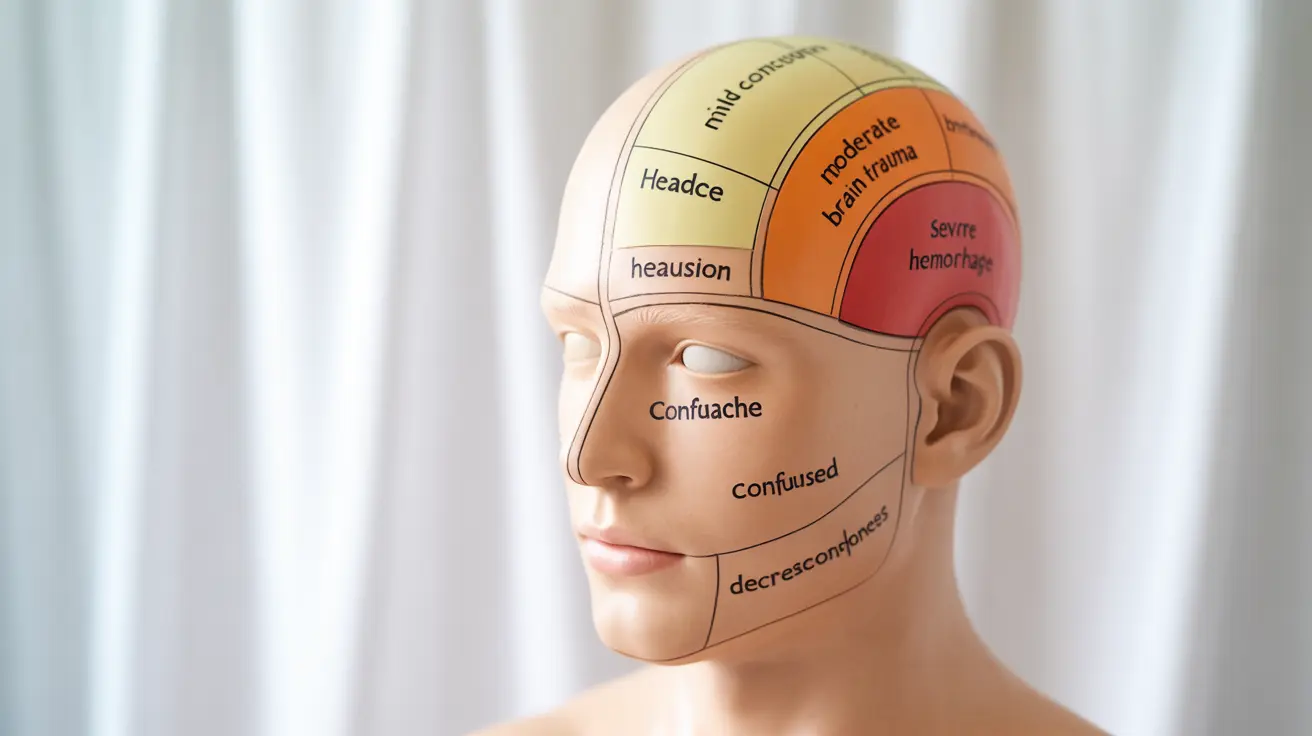Head injuries can range from mild bumps to severe trauma, and knowing how to identify and respond to them is crucial for optimal recovery. Whether caused by sports accidents, falls, or other incidents, understanding the signs, symptoms, and appropriate care measures can make a significant difference in recovery outcomes.
This comprehensive guide will help you recognize when medical attention is needed, understand different treatment approaches, and learn about proper care during recovery. We'll also explore the potential long-term impacts of head injuries and prevention strategies.
Types and Severity of Head Injuries
Head injuries typically fall into three main categories based on their severity:
Mild Head Injuries
Mild head injuries, including mild concussions, often involve temporary symptoms such as:
- Brief confusion or disorientation
- Mild headache
- Temporary dizziness
- Brief nausea
- Short-term memory issues about the incident
Moderate Head Injuries
Moderate injuries present more significant symptoms:
- Persistent headache
- Repeated vomiting
- Loss of consciousness lasting minutes
- Confusion lasting hours
- Balance problems
- Memory difficulties
Severe Head Injuries
Severe traumatic brain injuries (TBIs) are medical emergencies characterized by:
- Extended loss of consciousness
- Severe confusion or agitation
- Seizures
- Clear fluid leaking from ears or nose
- Unequal pupil size
- Inability to wake up
- Profound weakness or numbness
Immediate Response and Assessment
When someone sustains a head injury, proper immediate response is crucial:
- Check consciousness and breathing
- Keep the person still to prevent further injury
- Monitor vital signs
- Watch for worsening symptoms
- Call emergency services if severe symptoms are present
Diagnosis and Medical Evaluation
Healthcare providers use various tools to assess head injuries:
- Neurological examination
- Glasgow Coma Scale assessment
- CT scans or MRI imaging
- Cognitive function tests
- Balance assessment
- Vision and hearing tests
Treatment Approaches
Treatment varies based on injury severity and may include:
Conservative Management
For mild injuries:
- Physical and mental rest
- Gradual return to activities
- Pain management
- Regular monitoring
Medical Interventions
For moderate to severe cases:
- Medication for symptoms
- Specialized therapy
- Monitoring brain pressure
- Surgery when necessary
Recovery and Rehabilitation
Recovery time and approach depend on injury severity and individual factors. A comprehensive rehabilitation plan may include:
- Physical therapy
- Occupational therapy
- Speech therapy
- Cognitive rehabilitation
- Psychological support
- Regular medical follow-up
Prevention Strategies
Preventing head injuries involves several key practices:
- Wearing appropriate protective gear during sports
- Using proper safety equipment in vehicles
- Making living spaces fall-proof
- Following safety protocols in workplaces
- Maintaining good balance through exercise
Frequently Asked Questions
- What are the common symptoms of a head injury that require immediate medical attention?
Seek immediate medical care if you observe: severe headache, repeated vomiting, loss of consciousness, seizures, clear fluid from ears or nose, unequal pupils, extreme drowsiness, or confusion. These symptoms may indicate a serious injury requiring urgent evaluation.
- How are mild, moderate, and severe head injuries diagnosed and treated?
Diagnosis involves physical examination, neurological tests, and often imaging studies like CT scans or MRIs. Treatment ranges from rest and monitoring for mild injuries to intensive medical intervention, including surgery, for severe cases.
- What should be done to care for someone at home after a head injury or concussion?
Home care includes ensuring physical and mental rest, following a gradual return to activities, monitoring symptoms, managing pain with approved medications, and maintaining regular medical follow-up. The person should avoid screen time initially and not return to sports until cleared by a healthcare provider.
- How long does it typically take to recover from a traumatic brain injury (TBI)?
Recovery time varies significantly. Mild concussions may resolve in days to weeks, while moderate to severe TBIs can take months or years for recovery. Some individuals may experience lasting effects requiring ongoing management.
- Can repeated head injuries cause long-term brain damage or other complications?
Yes, multiple head injuries can lead to cumulative damage, potentially causing chronic traumatic encephalopathy (CTE), cognitive decline, behavioral changes, and increased risk of neurological conditions. This is particularly concerning in contact sports and military personnel.




